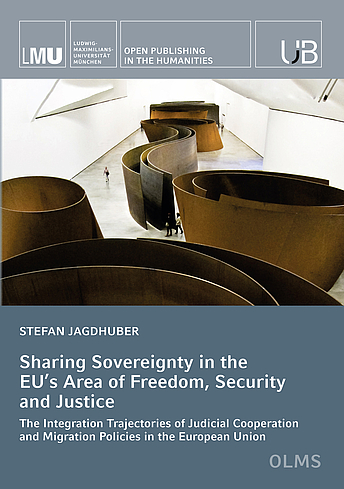Jagdhuber
Sharing Sovereignty in the EU’s Area of Freedom, Securityand Justice
ISBN 978-3-487-16055-9
englischEuropean integration has turned the EU neither into a state, in which authority is fully centralized in Brussels, nor is the EU a classic international organization, in which member states remain fully sovereign. Instead, European integration is patchy. For some policies, decision-making authority still rests with the member states whereas, for others, policy-making authority was transferred to the EU. Why does the EU’s authority vary across policies? Taking policies belonging to the EU’s Area of Freedom, Security and Justice as a sample, Stefan Jagdhuber theorizes and empirically analyzes why integration proceeded on illegal immigration policy and judicial cooperation on civil law matters whereas it stagnated for legal immigration policy and judicial cooperation on criminal law matters. The findings show that uneven integration trajectories in the EU are likely when policy interdependence, supranational activism and domestic constraints differ across policies.
Die europäische Integration hat die EU weder zu einem Staat gemacht, in dem die Autorität vollständig in Brüssel zentralisiert ist, noch ist die EU eine klassische internationale Organisation, in der die Mitgliedsstaaten vollständig souverän bleiben. Stattdessen ist die europäische Integration uneinheitlich. In einigen Politikbereichen liegt die Entscheidungsbefugnis nach wie vor bei den Mitgliedstaaten, während in anderen Bereichen die Entscheidungsbefugnis auf die EU übertragen wurde. Warum ist die Zuständigkeit der EU in den verschiedenen Politikbereichen unterschiedlich?
Am Beispiel der Politikbereiche, die zum Raum der Freiheit, der Sicherheit und des Rechts der EU gehören, analysiert Stefan Jagdhuber theoretisch und empirisch, warum die Integration bei der illegalen Einwanderung und der justiziellen Zusammenarbeit in zivilrechtlichen Angelegenheiten voranschreitet, während sie bei der legalen Einwanderung und der justiziellen Zusammenarbeit in strafrechtlichen Angelegenheiten stagniert.
Die Ergebnisse zeigen, dass ungleiche Integrationsverläufe in der EU wahrscheinlich sind, wenn politische Interdependenz, supranationaler Aktivismus und innerstaatliche Zwänge in verschiedenen Politikbereichen unterschiedlich sind.


